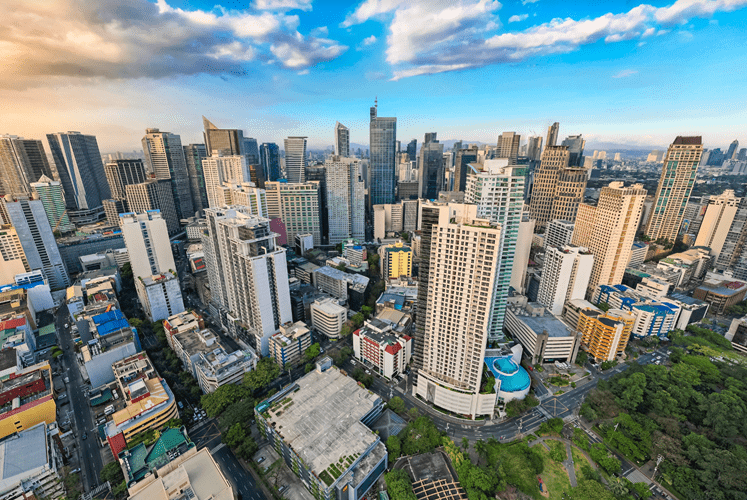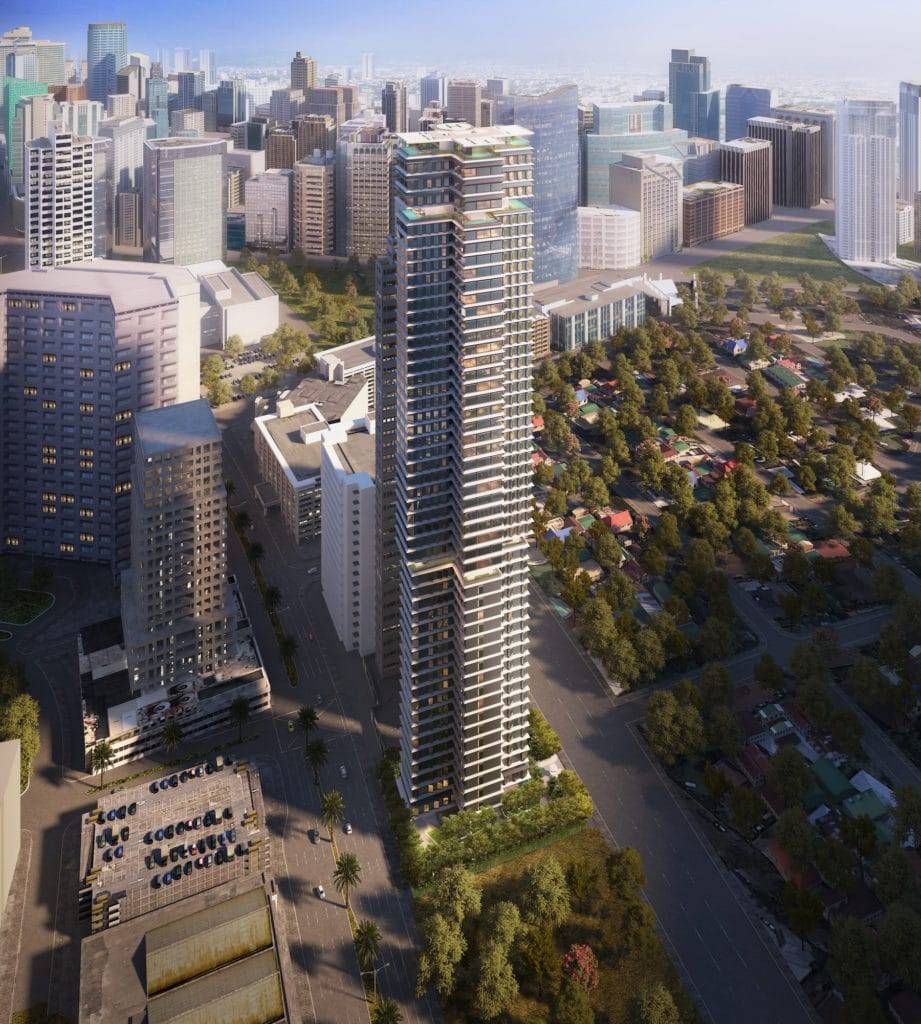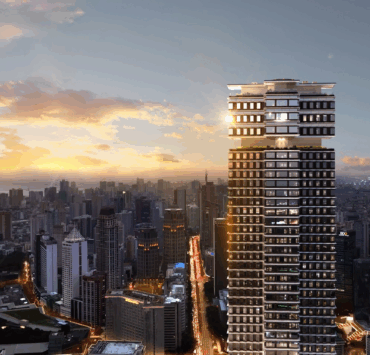Makati CBD: A bastion of premium real estate

The Makati central business district (CBD) remains a preferred business hub in Metro Manila.
This is understandable given its accessibility and proximity to other major business districts, the presence of upscale retail options, and availability of topnotch office towers and high-end residential buildings. The presence of Ayala Avenue also makes the CBD a prominent address especially among large outsourcing firms, top Filipino-owned corporations, and consular offices.
When one dissects the current real estate situation in Metro Manila, Makati CBD stands out. In terms of vacancies, it has the lowest in office space, and among the lowest in both retail and secondary residential markets.
Office landlords’ market
Makati CBD’s office vacancy is a cut above the rest given that it is likely to become a landlord’s market soon. This means that office landlords can already command premium rents for their leasable spaces—a trend that other business hubs are struggling to achieve postpandemic.
As of Q2 2025, vacancy in Makati CBD reached 8.1 percent, the lowest across all submarkets and below the Metro Manila-wide average of 20 percent.
Makati CBD also cornered 59,000 sqm of office space transactions, with most deals coming from traditional firms specifically from the flexible workspace, construction and engineering, banking and financial services and IT and software segments.
Given this strong demand, newer premium and grade A buildings in Makati command 20 percent to 100 percent premiums over the average, while older premium buildings (i.e over 10 years old) are priced 5 percent to 15 percent higher, according to my colleague, Office Services-Tenant Representation head Kevin Jara.
We have observed some traditional and outsourcing firms are expanding in the business district—a clear indication that the Makati CBD features a competitive office landscape for both landlords and tenants.

Premium residential towers dominate Makati skyline
From 2025 to 2029, Colliers expects the completion of 20,700 new condominium units in Metro Manila, with Makati CBD likely accounting for 12 percent of the new supply.
Majority of these are luxury projects including SM Development Corp. (SMDC) and Federal Land’s The Estate, Arthaland’s Eluria, and Alveo Land’s Parkford Suites.
Due to lack of developable land in Makati CBD, property firms have also been redeveloping old and existing properties into new residential projects. Some have formed joint ventures with other national players, maximizing the core strength of each firm in building high-end and ultra luxury residential towers.
Makati CBD’s residential segment appears to be standing on solid ground. Its share to total unsold ready-for-occupancy (RFO) condominium units is only less than 2 percent of total unsold RFO across Metro Manila. Secondary and pre-selling condominium projects within Makati CBD are among the more expensive in the metro, especially those along Ayala Avenue.
The pre-selling upper and ultra luxury projects (at least P50 million a unit) within Makati CBD enjoy good take-up rates, ranging from 50 percent to 72 percent as of Q2 2025.
Isolated from condo slowdown
What’s important to note amid the condominium slowdown issue is the fact that this persisting challenge in the capital region does not cover all sub-markets and price segments.
Makati CBD, for instance, continues to be one of the most, if not the most desired address of large, multinational firms and their employees. Local employees continue to flock to the business hub, resulting in greater take-up of condominium units for sale and lease in Makati CBD.
Colliers also doesn’t see a sizable addition to Makati CBD’s RFO condominium stock, unlike other locations that had sizable completions especially from 2017 to 2019. With other things being constant and with limited addition to total RFO supply in the business hub, we only expect prices in Makati CBD to increase beyond 2025.

What will drive new condominium supply
What’s interesting is that there are proposals to amend the zoning ordinance of Makati CBD.
Among the Makati Central Estate Association. Inc.’s (MACEA) proposed changes include increasing the allowable floor area ratios (FAR) for office and retail developments. All lots will now be mixed-use.
The new zoning ordinance also establishes the “superblocks” system, and a bonus FAR of 1.5 for lot owners that will incorporate breezeways and civic plazas into their developments. This should result in a more interesting development of new residential towers in the CBD—more reasons to redefine the Makati skyline!
Another measure that could be a game-changer for Makati CBD is the proposed Condominium Redevelopment Act, which will likely to complement new office and retail projects in Makati CBD.
The proposed measure is likely to be refiled this 20th Congress. Property stakeholders (not just residential developers) should closely observe the bill’s status and proactively position projects in one of the most dynamic CBDs in the capital region.
With a favorable business environment and solid demand drivers, there’s no doubt that Makati CBD’s premium condominium segment is likely to stand the test of time for years to come.
Prior to joining Colliers in March 2016, Joey worked as a Research Manager for a research and consutancy firm where he handled business, political, and macroeconomic analysis. He took part in a number of consultancy projects with multilateral agencies and provided research support and policy recommendations to key government officials and top executives of MNCs in the Philippines.


















